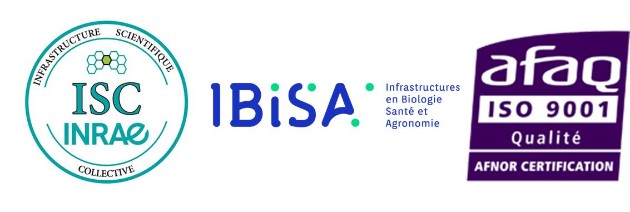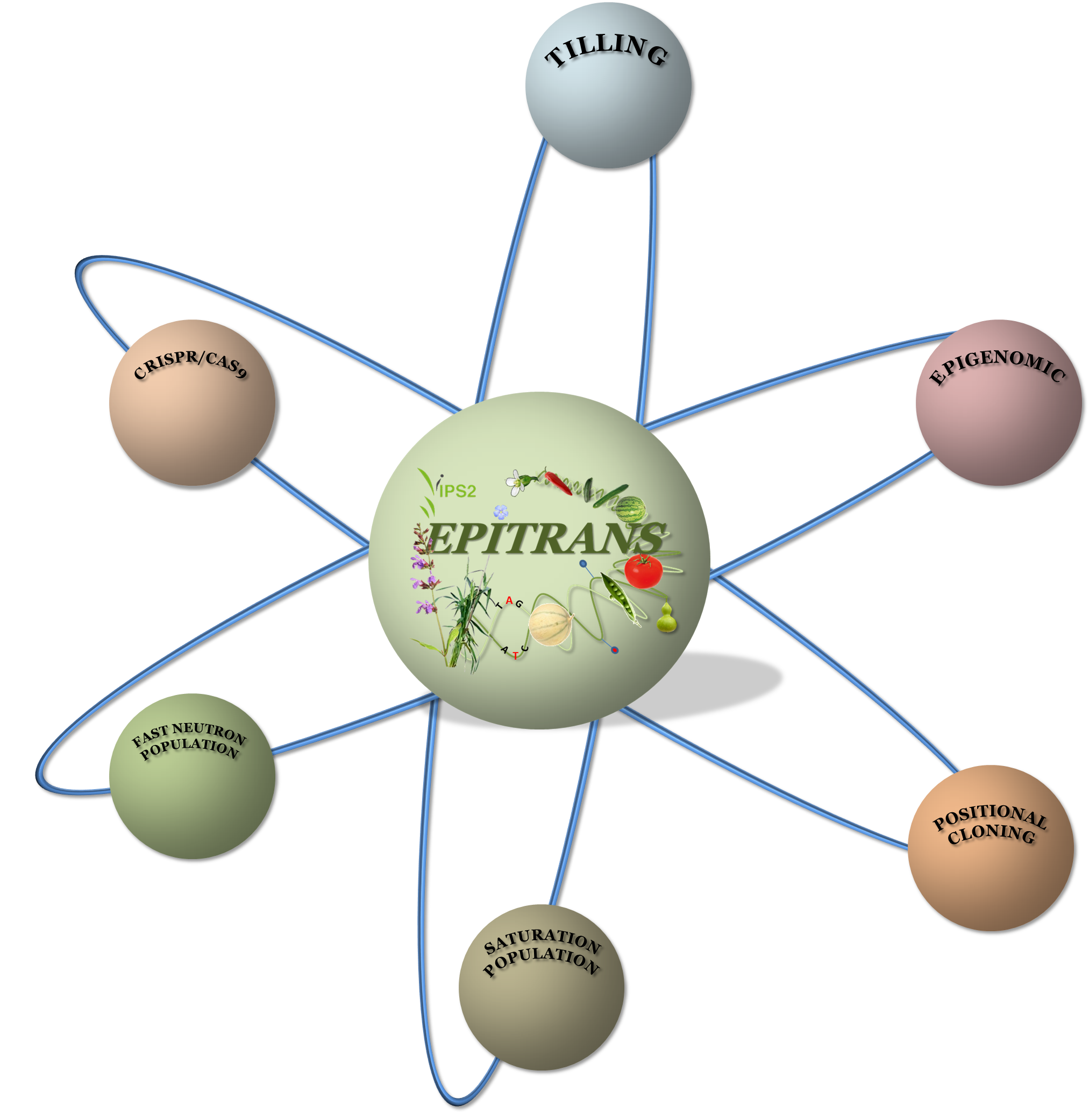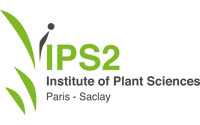EPITRANS: Epigenomic and Translational Biology

Scientific context
Agricultural yields have been greatly enhanced in the past 50 years. However, climatic perturbations and the spread of pests and pathogens are major upcoming threats to agriculture worldwide. Crop selection led to a reduction in the allelic variability and thereby narrowed the possibilities for genetic improvement.
Mission and objectives
The main goal of EPITRANS platform is to establish strategies and tools to identify key gene targets for plant breeding. It implicates (i) identification of traits and phenotypes of agronomic importance, (ii) characterization of the underlying molecular mechanisms (iii) engineering of leader alleles for speed breeding.

EPITRANS research activities
EPITRANS research activities are divided into two axis of research: EPIGENOMICS and TRANSLATIONAL RESEARCH.
In the EPIGENOMICS axis of research we propose state of the arts tools to investigate the contribution of the epigenome in the control of biological processes in crop species, with the final goal to identify epigenetic targets for crop improvement.
In the TRANSLATIONAL RESEARCH axis we propose state of the arts tools to characterize plant genomes and to translate the finding into leader alleles.
The research teams
The EPITRANS platform is integrated in two research teams of IPS2’s:
- « Floral Development and Sex Determination » team, led by A. Bendahmane
- « Cell Cycle, Chromatin and Development » team, led by M. Benhamed
